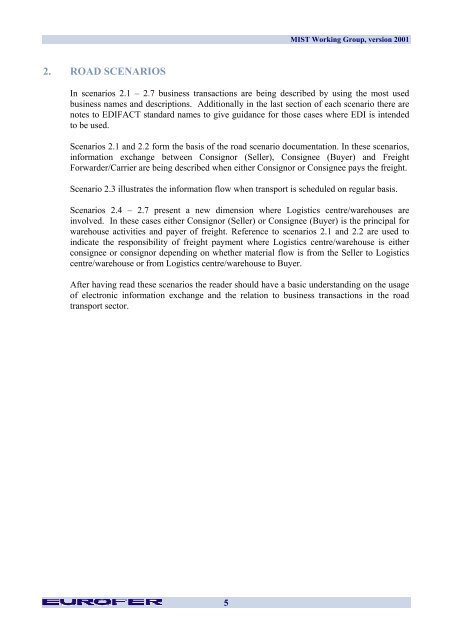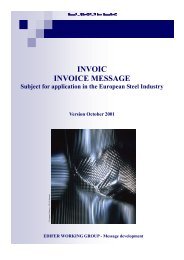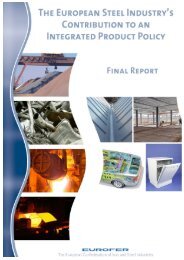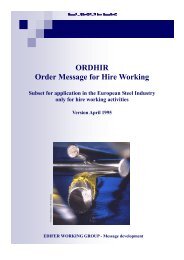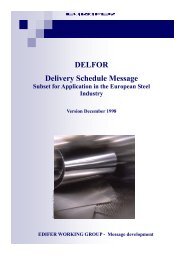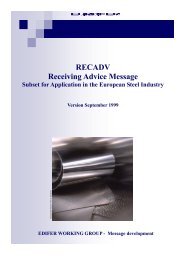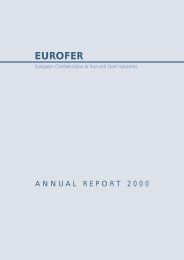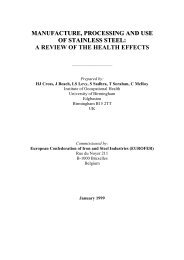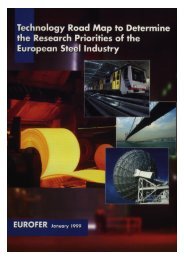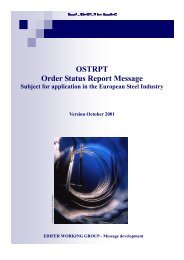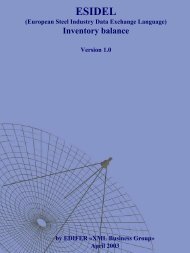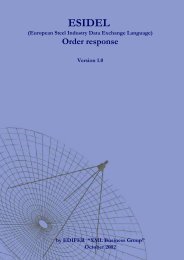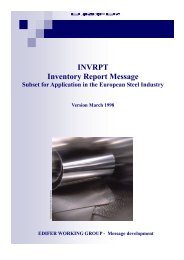Multi Industry Scenarios for Transport - Eurofer
Multi Industry Scenarios for Transport - Eurofer
Multi Industry Scenarios for Transport - Eurofer
Create successful ePaper yourself
Turn your PDF publications into a flip-book with our unique Google optimized e-Paper software.
2. ROAD SCENARIOS<br />
5<br />
MIST Working Group, version 2001<br />
In scenarios 2.1 – 2.7 business transactions are being described by using the most used<br />
business names and descriptions. Additionally in the last section of each scenario there are<br />
notes to EDIFACT standard names to give guidance <strong>for</strong> those cases where EDI is intended<br />
to be used.<br />
<strong>Scenarios</strong> 2.1 and 2.2 <strong>for</strong>m the basis of the road scenario documentation. In these scenarios,<br />
in<strong>for</strong>mation exchange between Consignor (Seller), Consignee (Buyer) and Freight<br />
Forwarder/Carrier are being described when either Consignor or Consignee pays the freight.<br />
Scenario 2.3 illustrates the in<strong>for</strong>mation flow when transport is scheduled on regular basis.<br />
<strong>Scenarios</strong> 2.4 – 2.7 present a new dimension where Logistics centre/warehouses are<br />
involved. In these cases either Consignor (Seller) or Consignee (Buyer) is the principal <strong>for</strong><br />
warehouse activities and payer of freight. Reference to scenarios 2.1 and 2.2 are used to<br />
indicate the responsibility of freight payment where Logistics centre/warehouse is either<br />
consignee or consignor depending on whether material flow is from the Seller to Logistics<br />
centre/warehouse or from Logistics centre/warehouse to Buyer.<br />
After having read these scenarios the reader should have a basic understanding on the usage<br />
of electronic in<strong>for</strong>mation exchange and the relation to business transactions in the road<br />
transport sector.


